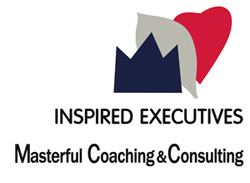|
|
|

|

|
|
The idiom “People don’t care how much you know until they know how much you care” beautifully summarizes the deep importance of trust as the major foundation of any relationship. How can you build one of the most valuable business commodities? Here are some ways to build trust:
|
- Engaging colleagues, peers or clients in discussion on topics of their interest
- Listening more than talking to truly understand the other’s perspective
- Providing reliable service, keeping promises and following through is imperative to building trust
- Sharing information transparently, being open and honest, and speaking from the heart demonstrates your trustworthiness
- Striving for a win-win solution for all parties involved
To trust or not to trust depends on the decision of the other person (not the one who would be trusted). Trust is a bi-lateral relationship. Displaying attitudes and behaviors that increase your trustworthiness, reliability and integrity still is no guarantee that other people will actually trust you. They might hold a low trusting belief that impedes their ability to socially engage.
|
As a leader, it is your key priority to create trust, to create a safe work environment where team members address problems promptly, and to be willing to put yourselves at risk based on someone else’s actions. An organization without trust is inefficient, and is often stagnant. Trust must permeate the entire corporate culture. And trust begins with you as leaders.
|
We live and work in an age of disruption and relentless change. Companies must be fast, adaptable, agile and courageous to compete. Dr. René Kusch, founder and Managing Partner of RELEVANT always says “agility needs stability”. To be(come) the eye of the storm – the calm region at the center of strong tropical cyclones – you need to have or develop a strong sense of who you are. The Hogan Assessment suite provided by René and his consultant team, which I am part of, strongly increases your self-awareness.
|
Trust cannot flourish in a workplace where leaders constantly avoid conflict. It is important to come to the understanding that conflict is not “bad”. It actually is an essential component of innovation, problem-solving, and growth. Oliver Florschuetz addresses conflict with his clients in a clear, direct, and truthful manner for them to be able to clear the way, take tough decisions and be productive again. Together with Oliver, I have worked with Senior Leadership Teams on defining vision and strategy, and building an innovative culture.
|
My coach colleague and long-standing friend Mary Burns Hoff wrote an insightful article “Trust: Gain motivation and lose anxiety” especially for this newsletter (thank you, Mary!). Mary shares some case studies, hurdles and ways to create trust. She has been addressing marketing and communication for not-for-profits and small businesses using coaching and consulting for 25 years.
|
Successful trust building can be the difference between success and failure in any business venture or industry. Contact us if you want to engage in a thought-provoking process that inspires you to maximize your personal and professional potential.
|
Lead courageously, Annette.
|
P.S.: If you find our quarterly newsletters helpful, please encourage your friends or business partners to sign up. Thank you.
|
|
|
|
|
|
A culture of trust needs transparency
|
|
|
|
Leaders, Everyone wants to be part of a workplace culture that puts a premium on delivering the real truth. Lies and secrets break trust, while honesty and transparency build trust. If trust somehow exists without transparency, this so-called trust is nothing more than an illusion because it is based on what is not real. Transparency is an essential ingredient for creating and maintaining trust. …
|
|
|
|
|
|
Trust: Gain Motivation and Lose Anxiety
|
|
|
|
Trust is fundamental to all relationships. Without it, the foundation of collaboration is quicksand. Here are some examples where trust plays a familiar role, and other illustrations where the challenge is murky. A surgeon I know has an explosive temper. It gets him into a lot of trouble – in his office, in the operating theatre, in his marriage, with …
|
|
|
|
|
|
New work needs empowerment
|
|
|
|
Leaders, Do you need to control everything in your business? Are your people excessively reliant on you asking your permission for every tiny detail? How do you empower your people? Do you give them credit consistently? Leadership of today is quite different from that of Caesar, Plato, the Wilhelminian time, or the post-war period. Today's leaders utilize power-sharing, trust, team-building, …
|
|
|
|
|
|
What the best leaders need to know about teams: Safety first!
|
|
|
|
Leaders, Imagine you accepted a new challenging position that created as much apprehension as it did excitement. Of course, you are aware that more and more of today’s work is powered by teams and the execution of the company’s long-term goals heavily relies on effective collaboration. As the newbie in the organization, what can you do to start off on …
|
|
|
|
|
|
Free Consultation Session
|
Contact Annette@Inspired-Executives.com or +49 162 240 4002 for a free consultation session (30 minutes via phone or videoconference).
|
|
|
|
|
|
|
|
|
|
|
|
|
|
|